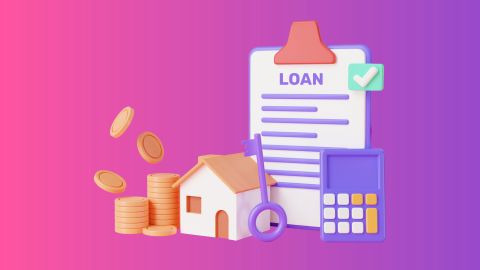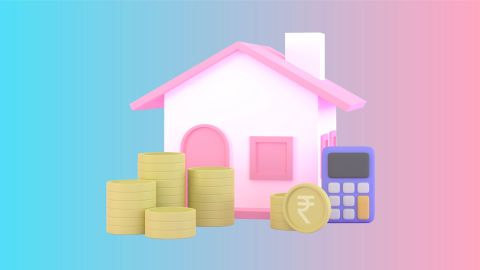Homeownership is a dream harboured by many in India, often facilitated through the avenue of home loans. Beyond fulfilling a basic need for shelter, purchasing a home also brings with it various financial implications, including tax considerations. The Indian government, recognising the significance of homeownership and its impact on the economy, offers several avenues for tax exemptions and deductions to home loan borrowers. Understanding these provisions not only aids in financial planning but also incentivises individuals to invest in real estate.
How many home loans are eligible for tax exemption?
In India, there is no explicit limit on the number of home loans an individual can take; however, the tax benefits on these loans are subject to certain conditions. Tax exemptions on home loans are primarily governed by Sections 24(b), 80C, and 80EE of the Income Tax Act. While these sections provide tax relief on the interest paid and the principal repayment, they do not restrict the number of loans that can be claimed for exemptions. However, the practical benefit and eligibility for multiple loans hinge on individual circumstances and compliance with specified conditions.
What is the tax exemption on a home loan?
Tax exemption on a home loan refers to the deductions that borrowers can claim on their taxable income for the interest paid on the loan and the repayment of the principal amount. Under Section 24(b) of the Income Tax Act, the interest paid on a home loan is eligible for deduction up to Rs. 2 lakh per annum for a self-occupied property. If the property is let out, the entire interest amount can be deducted.
Section 80C allows for a deduction of up to Rs. 1.5 lakhs per annum on the principal repayment of the home loan, including other qualifying investments and expenditures. Additionally, Section 80EE provides an extra deduction of Rs. 50,000 for first-time homebuyers on the interest paid, subject to certain conditions.
How can I become eligible for a home loan tax exemption?
To become eligible for home loan tax exemptions, borrowers need to meet specific criteria:
- Loan purpose: The loan must be taken for the purchase or construction of a residential property. Loans for renovation or repairs also qualify under certain conditions.
- Ownership: The borrower must be the owner or co-owner of the property. If the property is jointly owned, each co-owner can claim deductions proportionate to their share of the loan repayment.
- Loan disbursement: Tax benefits on interest are applicable only after the construction of the property is complete or the property is acquired. For under-construction properties, the interest paid during the pre-construction period can be claimed in five equal instalments after completion.
- First-time buyer benefits: To avail of deductions under Section 80EE, the borrower must be a first-time homebuyer, and the loan amount should not exceed Rs. 35 lakhs, with the property value not exceeding Rs. 50 lakhs.
Factors affecting the approval of multiple home loans
Several factors influence the approval of multiple home loans, including:
- Creditworthiness: A strong credit score and a good credit history are crucial for loan approvals. Lenders assess the risk based on past repayment behaviour and the current debt load.
- Income stability: Lenders evaluate the borrower’s income stability and repayment capacity. A higher income and a lower existing debt burden increase the likelihood of approval.
- Loan-to-value ratio (LTV): This ratio, which compares the loan amount to the appraised value of the property, affects approval. A lower LTV ratio signifies lower risk for lenders.
- Debt-to-income ratio (DTI): This ratio compares monthly debt payments to gross monthly income. Lenders prefer a lower DTI ratio, indicating that the borrower has sufficient income to manage additional loans.
Impact of multiple home loans on the credit score
Taking multiple home loans can impact your credit score in several ways:
- Credit utilisation: Higher loan amounts increase credit utilisation, which can negatively affect your credit score.
- Repayment history: Timely repayments improve credit scores, while defaults or late payments can significantly damage them.
- Credit inquiries: Multiple loan applications result in numerous credit inquiries, which can temporarily lower your credit score.
- Debt load: Higher overall debt can strain financial resources, increasing the risk of missed payments and further impacting credit scores.
Financial considerations for multiple home loans
Managing multiple home loans requires careful financial planning.
- Monthly EMIs: Assess your ability to handle multiple equated monthly instalments (EMIs) without compromising other financial obligations.
- Interest rates: Shop for competitive interest rates to minimise the cost of borrowing across multiple loans.
- Emergency fund: Maintain an emergency fund to cover unexpected expenses or financial setbacks, ensuring that home loan repayments remain uninterrupted.
- Tax benefits optimisation: Strategically plan the use of tax benefits to maximise savings across multiple loans, considering the limits and conditions of various sections of the Income Tax Act.
Consider Bajaj Housing Finance Home Loan
Home loans not only provide the necessary funds to purchase a home but also come with significant tax exemptions that can reduce the overall financial burden. Bajaj Housing Finance provides beneficial home loans that help you take full advantage of these tax benefits. Here are a few benefits of availing of a Bajaj Housing Finance Home Loan:
- Competitive interest rates: Begin your journey towards homeownership with competitive interest rates starting at 7.15%* p.a. With EMIs as affordable as Rs. 664/lakh*, owning your dream home is within reach.
- Convenient repayment options: Experience hassle-free loan repayment with extended tenures of up to 32 years. Choose a repayment plan that suits your financial situation, allowing you to manage your loan repayment efficiently.
- Personalised loan solutions: Craft your home loan to fit your unique requirements with our flexible options. Customise your loan amount, and repayment period, empowering you to achieve homeownership on your terms.
- Additional finance with the top-up loan facility: Unlock extra funds through our home loan balance transfer service and access a top-up loan of Rs. 1 crore* or higher. Utilise this additional finance for home improvements, repairs, or expansions with minimal paperwork and attractive interest rates.
Tax exemptions for home loans are a valuable financial tool, offering relief to homeowners by reducing their taxable income. By understanding the eligibility criteria and benefits available under different sections of the Income Tax Act, you can maximise your savings. Home loans from Bajaj Housing Finance not only provide essential funds for homeownership but also come with significant tax benefits, further easing the financial burden. By leveraging these exemptions, you can effectively manage your financial responsibilities while optimising your savings.




